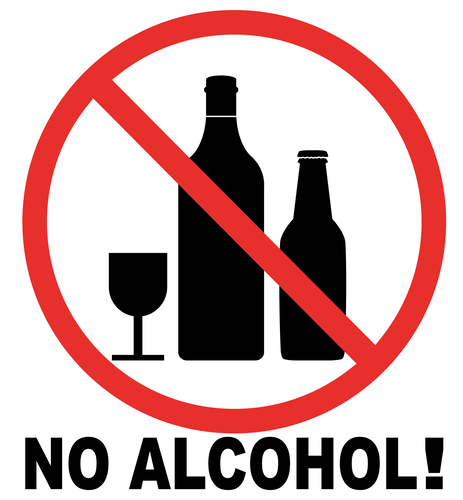Alcohol Detox: Definition, Stages, Types, Medications, Side Effects, Timeline
This method fits best if you have mild symptoms, no severe alcohol dependence, and high motivation for recovery. Outpatient Detox is a structured program that lets you detox at home with scheduled medical visits and support. You’ll have access to medication-assisted treatment (MAT), therapy, and programs like PHPs and IOPs to manage symptoms and reduce cravings.

Delirium Tremens and Its Symptoms
They help to manage withdrawal symptoms, https://crmtraining.org/2024/01/09/sobriety-tattoos-embracing-recovery-through-ink-ai/ prevent severe complications, and support long-term recovery. When a person stops drinking alcohol, the body starts detoxification and healing processes. These changes range from mild discomfort to serious withdrawal symptoms requiring medical supervision. For most people, alcohol withdrawal symptoms will begin to subside after 72 hours.
- It offers 24/7 monitoring, symptom management, and medication support for those with severe alcohol dependence, past withdrawal complications, or co-occurring mental health disorders.
- As you experience fatigue from the strain of withdrawal, you will likely begin to notice that the sleep you get is far more restorative and that you feel much better when you wake up in the morning.
- You need a place that can help stabilize you, arrest the progression of addiction, and educate you on what’s really going on mentally, physically, and emotionally.
Withdrawal
Women who had two or more drinks per day and men who had four or more drinks per day had significantly increased mortality. One of the most significant benefits of giving up alcohol is that you may increase your lifespan. Alcohol misuse can lead to serious health problems like liver disease and cancer. So, giving up alcohol can help you to avoid these potentially deadly diseases. If you’re a heavy drinker, you’re at an increased risk of developing certain diseases, such as cancer, heart Alcohol Use Disorder disease, and stroke.
- A comprehensive detox program should include professional medical support, individualized care, and a structured follow-up plan for long-term recovery.
- Alcohol detox works by allowing the body to metabolize and eliminate alcohol while adjusting to its absence.
- However, coverage varies by plan, provider, and state, with some plans offering more comprehensive coverage than others.
- People with severe substance use disorder may need to attend a residential detox program, which entails admittance to a hospital setting and 24-hour care and support.
What happens when you stop drinking alcohol?
The brain continues adjusting to the absence of alcohol’s depressant effects, causing emotional instability and sleep disturbances. Alcohol detox is a necessary first step for anyone with alcohol dependence, a condition that can develop through chronic, heavy drinking. At Recovery Guide, our mission is to connect as many individuals struggling with mental health and substance abuse disorders to reputable treatment facilities. Clients at Carolina Center for Recovery will undergo a personalized journey through one of our highly effective treatment programs.

Typical antipsychotics, such as haloperidol, are not used to treat alcohol withdrawal. Wernicke encephalopathy may occur in people who have a thiamine (vitamin B12) deficiency, a condition that is common among those addicted to alcohol. A treatment center will attempt to verify your health insurance benefits and/or necessary authorizations on your behalf. We cannot guarantee payment or verification eligibility as conveyed by your health insurance provider will be accurate and complete. Payment of benefits are subject to all terms, conditions, limitations, and exclusions of the member’s contract at time of service.

Individuals with alcohol dependence, severe binge drinking habits, or a high withdrawal risk need alcohol detox to safely remove alcohol from their system and manage potential complications. Detox is necessary for those who experience withdrawal symptoms or are at risk of life-threatening effects like seizures or delirium tremens. These benefits are most notable if you maintain sobriety after you complete alcohol detox, and the best way to do that is to transition into an alcohol addiction treatment program. Inpatient is the most intensive and may provide you the best opportunity to obtain and maintain sobriety, due to its structure and serene environment. You can manage withdrawal symptoms during alcohol detox by seeking medical supervision, which includes the use of medications like benzodiazepines to control anxiety and prevent seizures. Additionally, staying hydrated, maintaining good nutrition, and engaging in therapy help alleviate symptoms and promote alcohol detox side effects a smoother detox process.
What Are the Risks of Severe Alcohol Withdrawal?
It can be potentially fatal, underlining the severe alcohol health risks of heavy drinking. This does not mean that a mental health condition will necessarily go aware when you stop drinking but abstaining from alcohol use can improve your symptoms and lead to better treatment outcomes. The first day is always the hardest, but it’s also an important milestone. After 24 hours without alcohol, your body will start to detoxify and you may experience withdrawal symptoms. It takes approximately one hour per standard drink for the liver to detox from alcohol.


